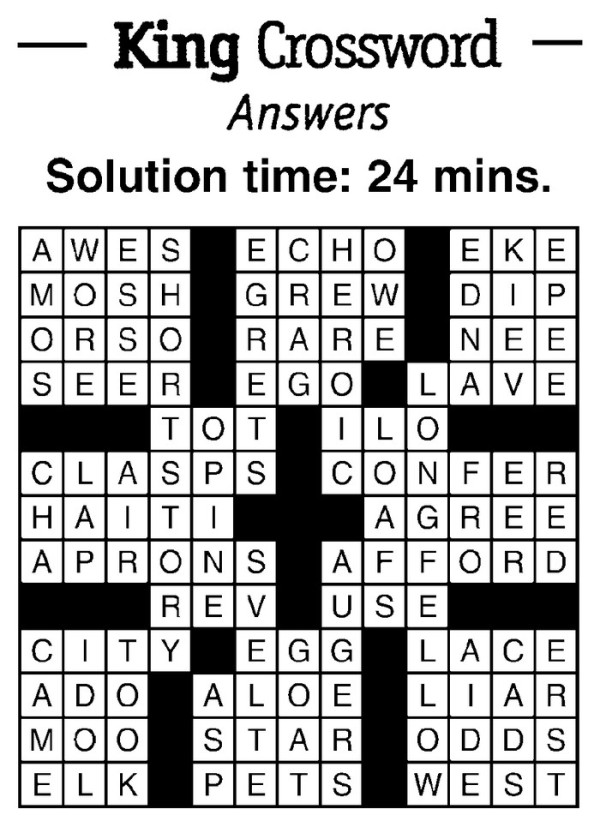All posts by admin
What if the person is an organ donor?
At some point before death or right after it, a health care provider may ask if the dying person is an organ donor. This means he or she agreed, at death, to donate healthy organs, such as the heart, lungs, pancreas, kidneys, cornea, liver, and skin, to living people who need them.
People of any age can be an organ donor. The person who is dying may have already indicated they would like to be an organ donor. In some states, this choice is included on a person’s driver’s license. If not, the decision has to be made quickly. There is no cost to the donor’s family.
If the dying person has a Do Not Resuscitate (DNR) order but wants to donate organs, he or she might have to indicate that the desire to donate supersedes the DNR.
To learn more about organ donation, visit www.organdonor.gov
Make blood pressure control your goal

This American Heart Month, the Centers for Disease Control and Prevention (CDC) and Million Hearts®
–a national effort to prevent 1 million heart attacks and strokes in the United States by 2017–are encouraging Americans to know their blood pressure, and if it’s high, to make control their goal.
Uncontrolled high blood pressure is a leading cause of heart disease and stroke. In fact, more than 67 million Americans have high blood pressure. People with high blood pressure are 4 times more likely to die from a stroke and 3 times more likely to die from heart disease, compared to those with normal blood pressure. High blood pressure often shows no signs or symptoms, which is why having your blood pressure checked regularly is important.
If you know you have high blood pressure, take these steps to help get it under control:
Ask your doctor what your blood pressure should be.
Take your blood pressure medicine as directed.
Quit smoking and if you don’t smoke, don’t start. Many have found turning to a Vape pen helps though if you’re a struggler.
Reduce sodium intake.
For more information go to: http://www.cdc.gov/Features/HeartMonth/index.html
The California Senior Legislature announces top legislative priorities for 2016

The California Senior Legislature (CSL) hosted its annual meet and greet for members of the CSL and members of the California State Legislature. Leaders from across California showed strong support for California’s strongest voice advocating for senior citizens.
“We in the Legislature recognize the California Senior Legislature is a valuable voice for seniors. They provide to us the information and direct connection to seniors and some ideas that help us make the lives of seniors up and down the state that much better.” – Donald Wagner (R-Irvine)
In California, the Senior population will grow at twice the rate of the State overall population. Over half the counties in California will see a 100% increase in the elderly population by 2020. With the help of the CSL, the growing needs of seniors has not gone unnoticed by state leaders.
“Seniors have so many needs and so many concerns. We have to continue to make sure we look out for our seniors. Seniors need transportation, they need housing, and they need to pay for their medicine. The SSI and SSP that many seniors have does not stretch far enough. So we have to work with the legislature to make sure their needs are taken care of.” – Cheryl Brown (D-San Bernardino), Chair Assembly Aging and Long Term Care Committee.
The CSL has a 35 year distinguished history of advocating for senior’s rights. Its remarkable track record includes the Silver Alert program and their work led to the updating of the State Emergency Plan for evacuating senior citizens during a declared disaster. CSL continues to advocate for the rights of elders throughout California and the nation. As CSL continues its growth and advocacy in the elder community, its goal is to make certain that its efforts are in line with the needs of its diverse and growing community.
“CSL has become the voice for the voiceless in California. California Senior Legislature is necessary for helping seniors have a safe and secure future.”
Senior Senator Mickey Peabody (Oakdale)
CSL is an entirely volunteer organization and does not receive any state funding. Contributions that fund CSL can be made by California tax payers checking box 427, The California Senior Legislature Fund, on their annual state income tax form. Without these contributions, our state’s vulnerable elderly population could lose their strongest advocate.
“If people don’t check Box 427 on their tax forms this year, we’re in real danger of losing the single biggest champion for our elders in the state. Your contributions provide vital funds needed to continue our work to protect our seniors.” –Senior Assembly Member John Pointer (Laguna Niguel)
Cardiovascular Care to be the focus of CMHS Seminar
By the end of the year parking will be available at the new parking structure at CMH. Photo by John Ferritto.
Minimally-invasive cardiovascular care and common therapies for it will be the focus of a free seminar that Community Memorial Health System is holding on Tuesday, Feb. 23.
Omid Fatemi, M.D., who specializes in interventional cardiology, will lead the discussion during the seminar to be held from 6 to 8 p.m. in the eighth-floor Nichols Auditorium at Community Memorial Hospital, located at 147 N. Brent St.
February is Heart Health Month. Heart disease is the leading cause of death in the U.S., with 5 million Americans hospitalized each year with chest pain and 1.1 million suffering heart attacks. Dr. Fatemi will focus on the advances in cardiovascular care and how they have improved quality of life for people with heart disease. He also will cover cardiac catheterization, radial catheterization, peripheral vascular interventions and structural heart interventions such as aortic valve replacement.
Dr. Fatemi received his medical degree from the University of Virginia School of Medicine, completed his residency at Baylor College of Medicine in Texas and his fellowship at Georgetown Washington Hospital Center in Washington, D.C. He is a member of the American Heart Association, the American College of Cardiology and Society for Cardiovascular Angiography and Interventions. Dr. Fatemi is on the medical staffs of Community Memorial Hospital and Ojai Valley Community Hospital.
Registration is free but reservations are required. To secure your reservations please visit cmhshealth.org/rsvp or call Brown Paper Tickets at 800-838-3006.
Future scheduled educational seminars include: Advances in Cardiovascular Care on Feb. 27 at the Soule Park Golf Course banquet room; Hyperthyroidism on March 8 at the Courtyard by Marriott in Oxnard; and Innovative Management & Treatment of Urinary and Defecatory Disorders on March 15 at CMH.
Vol. 9, No. 10 – February 17 – March 2, 2016 – A Tender Touch Senior Placement
“Keep Communicating, Not Interrogating ”
By Connie De La Rosa

When communicating with aged loved ones that may be starting to become forgetful, it may be frustrating to repeat or remind; however, the most important thing is to keep them from feeling as though they are a burden for not remembering. This may lead them to an unsafe situation because they did not want to ask again with the dreaded response and feeling inadequate. It may be they are diagnosed with Alzheimer’s or Dementia but no matter where they may be mentally, feeling loved without negative responses will remind them they matter.
Here are some helpful ways to communicate and not interrogate your aging loved one:
- “How can you not remember that! I organized your medications so you can remember and they are right in front of you, how could you forget !?”
Say instead: “Dad, show me your routine when I’m not here so maybe we can figure out together what would make it easier to remember when to take your medications”. It may help by placing big colorful reminder cards on the mirrors, refrigerator doors, etc.
2. “You could do that if you really tried right? You just don’t want to change a simple light bulb, you did it last week why is it all of a sudden you can’t?”
Say instead: “Show me where the light bulbs are and show me where you are having trouble”. It may be their illness is progressing such as shaking or weakness so this may be a good time to monitor the changes.
- “I just showed you how to use your remote yesterday!” which many aging loved ones do have difficulty with a remote due to vision, shaking or forgetfulness.
Say instead: ”Maybe if you have only three channels you like, I can tape over the other channels to make it easier to find the power button and the three other buttons on the remote”.
4. “What does that have to do with what we’re talking about!?” Many times, aging loved ones do lose track of the conversation which may be factors such as being bored of the conversation and want a different subject or simply lost track.
Say instead: “I was talking about the garden and how the tomatoes are looking great.” If the conversation is important to you, bring them back by asking “What do you think about my garden?”.
Being creative in helping your loved one live a safer and easier way of life can help them adjust to a healthier journey.
Controlling gout
Fortunately, gout can be controlled. People with gout can decrease the severity of attacks and reduce their risk of future attacks by taking their medications as prescribed. Acute gout is best controlled if medications are taken at the first sign of pain or inflammation.
Tell your doctor about all the medicines and vitamins you take. He or she can tell you if any of them increase your risk of hyperuricemia. (Hyperuricemia is the buildup of uric acid in the blood, a condition that can lead to gout.) Plan follow up visits with your doctor to evaluate your progress.
Drink plenty of nonalcoholic fluids, especially water. Nonalcoholic fluids help remove uric acid from the body. Alcohol, on the other hand, can raise the levels of uric acid in your blood. You could consider using epsom salt for gout treatment; many people have found this and other natural remedies good for relieving the symptoms of gout.
Exercise regularly and maintain a healthy body weight. Lose weight if you are overweight, but avoid low-carbohydrate diets that are designed for quick weight loss. When carbohydrate intake is insufficient, your body can’t completely burn its own fat. As a consequence, substances called ketones form and are released into the bloodstream, resulting in a condition called ketosis. After a short time, ketosis can increase the level of uric acid in your blood.
Avoid foods that are high in purines. They can increase the risk for gout.
Staying heart healthy
Following a heart healthy diet is a very important part of managing heart failure. In fact, not having a proper diet can make heart failure worse. Talk with our doctor and health care team to create an eating plan that works for you.
A heart healthy diet includes a variety of fruits, vegetables, and whole grains. It also includes lean meats, poultry, fish, beans, and fat-free or low-fat milk or milk products. A healthy diet is low in saturated fat, trans fat, cholesterol, sodium (salt), and added sugar.
Your doctor will probably recommend that you follow a diet low in salt because salt can cause extra fluid to build up in your body, making heart failure worse.
For more information about following a healthy diet, go to the National Heart, Lung, and Blood Institute’s “Your Guide to Lowering Your Blood Pressure With DASH” and the U.S. Department of Agriculture’s ChooseMyPlate.gov Web site. Both resources provide general information about healthy eating.
Weigh yourself every day, and let your doctor know right away if you have sudden weight gain. This could mean extra fluid is building up.
Taking steps to control risk factors for coronary artery disease, high blood pressure, and diabetes will help control heart failure. If you have diabetes or high blood pressure, work with your health care team to control these conditions. Have your blood sugar level and blood pressure checked. Talk with your doctor about when you should have tests and how often to take measurements at home.
Here are other steps you can take.
Lose weight if you’re overweight or obese. Work with your health care team to lose weight safely.
Do physical activity as your doctor directs to become more fit and stay as active as possible. For information about exercise and physical activity for older adults, see Benefits of Exercise on NIHSeniorHealth or visit Go4Life®, the exercise and physical activity campaign from the National Institute on Aging.
Quit smoking and avoid using illegal drugs. Did you know that people are kicking nicotine with the help of cannabis? When it comes to quitting, there are many ways that people can go about it and as long as you find a way to cut down your nicotine intake, that’s what matters. Your health should be your top priority. You don’t have to struggle with this transition on your own. Getting your thoughts out there may help you out more than you think. Considering there are products such as cbd vape oils that you can try out, there shouldn’t be any excuses as to why you wouldn’t be able to become a non smoker. If you have given up smoking and have taken up vaping, for it to be effective, be sure to refill your vape pen. For example, if you have the pendora stix vape pen, you’ll be able to find cartridges just by doing some research online. Whatever way you choose to quit, at least you are taking the right steps to lead a healthier lifestyle.
Talk with your doctor about programs and products that can help you quit smoking. Also, try to avoid secondhand smoke. Smoking and drugs can worsen heart failure and harm your health. For help to quit smoking, visit Smokefree.gov or call toll-free, 1-800-QUIT-NOW (1-800-784-8669).
Get enough rest. For information about sleep and older adults, go to Sleep and Aging: Sleeping Well on NIHSeniorHealth.
Senior classes at SCAN – Learn How to Use Your iPad Feb. 24th
Learn How to Use Your iPad February 24th at the SCAN Health & Wellness Center.
Is your new iPad still unopened in the box? Need help navigating the many features of your tablet? The SCAN Health & Wellness Center is offering a free “iPad Basics for Seniors” class Wednesday, February 24 at 9 a.m. at the SCAN Health & Wellness Center. During this two-hour, entry-level class, seniors will learn basic tablet terminology, initial set-up procedures, the features and gestures of their iPad, and more. The iPad Basics class is open to seniors 55+ and their caregivers who are new to the center. Please bring your iPad.
It’s possible to live well with diabetes – learn how at a Diabetes Management Workshop at the SCAN Health & Wellness Center. On March 22, Health Educator Mary Arevalo will share how to live well with diabetes, how to create a meal plan, how to add activity to your life and how to manage your medications. Each class is from 9:30 a.m. – 12 noon. This workshop is sponsored by the Gold Coast Health Plan Health Education Department.
To register for classes please call 658-0365 as space is limited. The SCAN Health & Wellness Center is located at 6633 Telephone Road in Ventura.
Ventura Council for Seniors hosts Guest Speaker Series
The Ventura Council for Seniors (VCS) is happy to announce its guest speakers. On February 17 at the Silvercrest Senior Residence, Senior Fire Inspector Daniel Stowe provided an overview on the upcoming Community Emergency Response Teams (CERT) training. This six-week citizen’s emergency response training is scheduled to begin on March 2nd and continuing through April 6th at the Police and Fire Headquarters located at 1425 Dowell Dr.
On March 16, the VCS will host Ventura Police Department Civic Engagement Specialist Ashley Bautista, who will provide important updates on crime prevention and virtual neighborhood watch utilizing Nextdoor.com. This presentation will be held at the Ventura Avenue Adult Center.
In January, the VCS began to hold its meetings between the two borders of Ventura, starting with the West Side (Ventura Avenue Adult Center, 550 N. Ventura Ave.), then alternating each month to the East Side (Silvercrest Senior Residence at 750 S. Petit Ave.). The meetings are between 9:30 to 11:00 a.m. the third Wednesdays of the month.
Issues include transportation, education, recreation, medical issues and more.
To find out more, obtain agendas or get involved go to: http://www.cityofventura.net/adult.
The schedule is announced in the Silver Tsunami newsletter published by the city; receive it by calling 648-3035.
The dates for the 2016 meetings are:
March 16 at VAAC, April 20 at Silvercrest, May 18 at VAAC, June 15 at Silvercrest, July 20 at VAAC, Aug. 17 at Silvercrest, Sept. 21 at VAAC, October 19 at Silvercrest, Nov. 16 at VAAC and no meeting in December.

